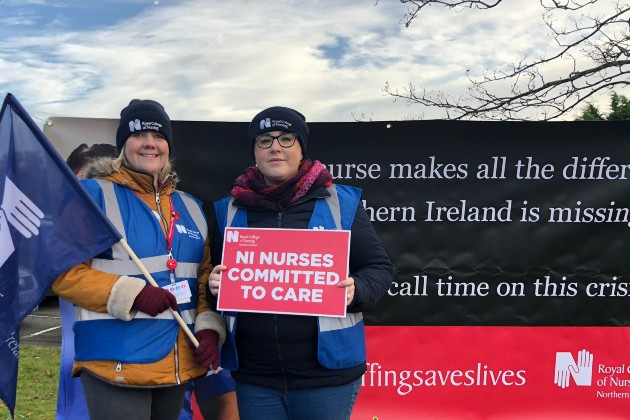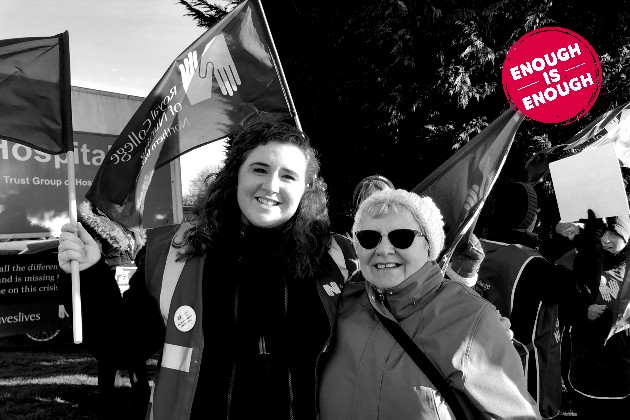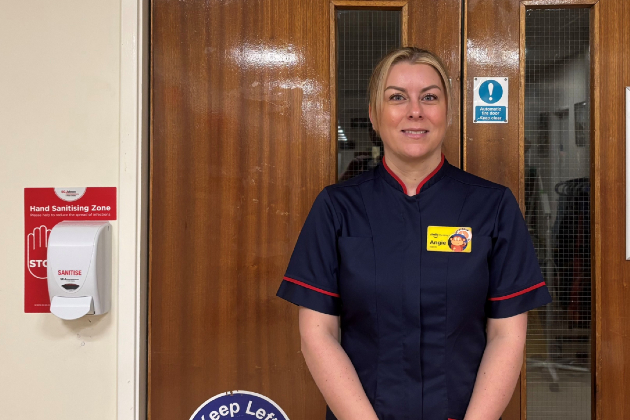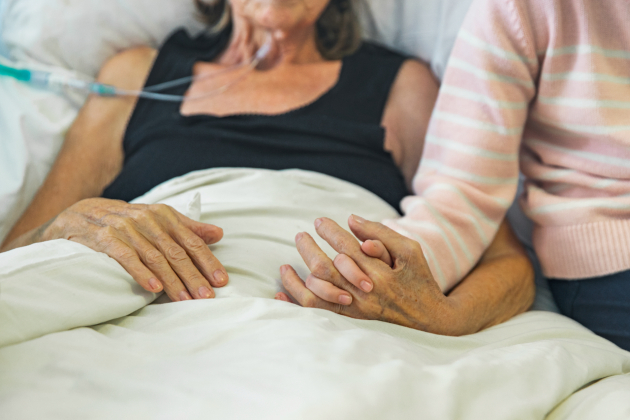As I listened to the six o’clock news on my drive to work on the day of the first strike in 2019, I cried. I never thought we’d get to that point. I felt devastated, but we’d been left with no other choice. Chronic staff shortages meant patient care had become unsafe and our pay had fallen behind what nursing staff in other parts of the UK were earning.
Now, sadly, we’re here again. If I can say anything to reassure other reps and members, it’s that we know why we’ve reached this point, we’re doing it for patients and the profession, and the solidarity of members on the picket line last time was incredible.
We’re doing it for patients and the profession
As an RCN steward, I was part of the local strike committee. This meant I was involved in a lot of organising in the lead-up to strike days. A big part of this was considering derogation requests that came through, approving them when we could be assured they related to life-preserving care, and talking to staff about what that meant for them.
As a strike committee we also talked to a lot of members beforehand about what to expect and what their rights were. We used our RCN social media channels to keep members informed. Opening up this direct line of conversation with RCN staff and reps worked really well and gave members a lot of support and confidence.
Lyndsay’s tips for members involved in strike days
- Know the legal requirements. Members will look to you to fight their corner if there are issues with management. Know that all the legal requirements have been met, how the derogations have been set up and have the conviction to support members who want to strike but are getting misinformation or resistance from managers.
- Start conversations early. Speaking to senior management and HR departments well in advance can help with this. Set up channels of communication as soon as you can. We also had meetings throughout the strike days with them so that they could raise any concerns and vice versa.
- Make the most of social media. It’s such a great tool to get your message out there and spread the word, but also to dispel myths about what members can and can’t do. There’s so much support and information already out there on the RCN website. We used social media to direct members to that, encouraged them to find out who their reps were and to ask for support.
- Know your local politicians. Members of the Local Assembly and MPs turned up to the picket lines. Know who the local politicians are and be ready and willing to speak to them. Know what you want to say, be direct and try to encourage them to support nursing staff publicly on their social media accounts if they’re sympathetic.
- Get media savvy. Talk to the RCN team where you work if you’re asked to speak to the media. It is most powerful when we all use the same messages on days of action. Make sure members are prepared for the presence of journalists and news outlets. It’s important to make them aware that any comments they make be on TV, the radio, in newspapers. My advice would be to remain professional and measured, but be honest.
- Prepare for the weather. Look at the forecast. Likely strike action will be taking place around the same time of year again this year. Bring multiple layers, have an umbrella at each of the sites and set up drinks stations to be able to supply people with a hot drink.
- Encourage breaks (and take them!). There was such a great atmosphere on our picket lines that we found lots of people didn’t want to leave. It’s important to keep an eye on everyone though and ensure they’re taking breaks.
On strike days, there were at least two of us, either from the strike committee or other active members, in charge of each picket line. We ran the picket lines from 8am to 8pm, and we’d get there from about 6.30am to set up. We had banners and placards and a break area, where people could go to get warm, have a sit down and a drink.
We’d do shifts on the line, making sure to maintain good health and safety as well as ensuring that the RCN was being well represented as a professional body. In practice this meant keeping footpaths clear, making sure no one was blocking any emergency access to the hospital, and encouraging people to take breaks.
We were truly being the voice of nursing
There were a few negative encounters with members of the public, and tricky conversations to be had, but overall there was so much support. People were tooting their horns as they went past. Farmers turned up on their tractors with “we support nurses” banners. Medical staff from the hospital came over with hot drinks.
There was a real buzz that we were doing something unprecedented, really taking a stand for our patients and profession. It felt for the first time ever like we were truly being the voice of nursing.

What's the latest on strike action?
Find out more about our Fair Pay For Nursing campaign and get updates on strike action.
Other useful links:








